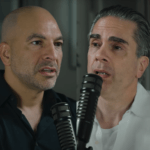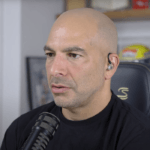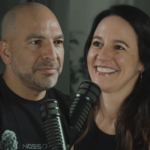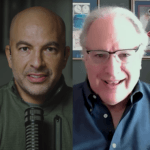In this episode, professional archer, John Dudley, shares the many insights he’s gleaned through the process of not only becoming an elite competitor of archery but also an exceptional teacher. John describes how his desire for improvement has cultivated a sheer love of practice, and how pursuing mastery helped put into context how archery is an amazing model system for life. Additionally, John discusses the often misunderstood nature of hunting, but also makes the case as to why one should consider trying archery even if there is no desire to hunt.
Subscribe on: APPLE PODCASTS | RSS | GOOGLE | OVERCAST | STITCHER
We discuss:
- Why John loves archery, and what it means to be a professional archer [4:50];
- How John’s love of practice and training led to archery [10:45];
- How an intense desire to improve drove John to quit football and pursue archery [22:00];
- A traumatic childhood event that changed John’s course from troublemaker to committed athlete [34:15];
- The nuts and bolts of archery—competitive events, types of bows, hunting, etc. [45:30];
- The blissful nature of archery, and the uselessness of anger [57:15];
- Hyper-focus and flow states—Did John’s ADD and task-driven personality give him an advantage? [1:07:15];
- The common traits found in the most successful people [1:12:45];
- The keys to maintaining credibility as a salesman—integrity, honesty, and straightforwardness [1:18:45];
- The coaching technique that makes John a great teacher [1:28:30];
- Why you should consider trying archery (even if you never want to hunt) [1:36:15];
- Hunting discussion—the morality argument, hunting vs. commercial farming, managing overpopulation, and the unique emotional connection [1:45:00];
- Resources for those interested in taking up archery [2:12:00]; and
- More.
Why John loves archery, and what it means to be a professional archer [4:50]
- John grew up in Mississippi and then the Illinois near the Fox River and learned archery as a child
- First bow hunt was at 10 years old
Why does John like archery so much?
“Because it’s hard”
- That insight came from Andy Stumpf, he goes, “That is why you do it. Because there’s days where you’re good at and there’s days when you’re not.”
- There’s always been a new challenge in archery where John can start from a place of being bad and work his way up to being good
- Every time he would get bored, he would jump to a new aspect of archery and start the learning/growing process over again
- With archery, there are days where everything is clicking but then the very next day you can’t replicate it (kind of like how golfers feel)
- In other words, you can’t just be perfect all the time
“I just have made a career out of being poor at a certain aspect of it and making it a mission to become good at that. And then over the course of 33 years, I’ve got to the point where now I feel like I have a very good understanding of the game and I’ve learned a lot from a lot of mistakes.”
How John’s love of practice and training led to archery [10:45]
- John was an All-American athlete growing up
- In fact, John earned a division 1 scholarship to play quarterback at Western Carolina
A great story…
{end of show notes preview]






You pick great company, Peter. I come from a hunting/fishing/outdoorsy background and it really is difficult to convey it viscerally until experienced first hand, but I think you and John did it justice. Just had my bow restrung and will definitely check out the nock on channel on YouTube to look for ways I can improve my form and technique. I need to get better. And of course the patty cakes on first time getting drunk stories as well as John recanting his traumatic childhood experience.
Hi Peter, thanks for doing what you do! I bought a bow a couple months ago after hearing you repeatedly speak so highly of shooting. Would you mind sharing the author and title of the back tension book Tim gave you when you got started? I’d love to check that out. Thanks again — your content is amazing!
Hi Peter, As Trad Archer I was very interested in this podcast. Can you link John’s podcast? Thanks
Hi Harvey, John’s podcast is called Nock On Podcast (https://podcasts.apple.com/us/podcast/nock-on/id827919428).
Peter and John – thanks for this conversation! I do historical and horse archery – utterly different in some ways – but its great to hear that the fundamentals of discipline, focus and relaxation-release are the same throughout. Try a horse bow with a thumb ring – it’s amazing and will give you something completely off your grid.
I should have learned after many times not to skip Peter’s podcasts because the subject matter doesn’t interest me. John Dudley was a fascinating guy and a great interview. I decided to listen to this rather than listen to the Lew Cantley podcast for the third time, which was another great interview.
Particularly impacting me on this podcast were: 1) John’s parent’s reaction to his burning of their house and how it changed him as a person, 2) How John’s decision to follow his dream led to wild success. I suspect that we get a biased view of this because we only hear the success stories, but tying in the Cantley interview, successful people manage to overcome failure along the way. Success is never a monotonically increasing function. 3) How John is able to be a successful teacher by looping in his students’ other interests. This is a really strategic view and something I will use going forward.
Thanks to both of you! Sorry I doubted you, Peter… again.